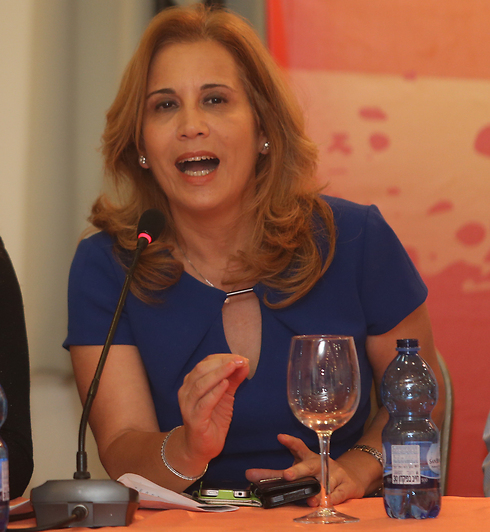
Only 1/8 of reported sexual offenses lead to indictments
Large percentage of complaints never lead to indictments, mainly because of lack of evidence. Last year saw a 12% increase in calls to crisis centers, which are demanding that the government take action.
According to the report, which is based on data from the state prosecution, 5,238 sex crime cases were handled by the prosecution last year. Out of that, only in 594 cases indictments were filed. In most cases, 71.4 percent, the cases were closed due to the lack of evidence.
The report noted a dramatic decrease in the number of sexual offenses and sexual harassment cases that went to court. Last year, 798 cases were brought in front of a judge compared to 855 the year before and 1,008 in 2011.
The report showed a 12 percent increase during 2013 in the number of victims turning to crisis centers compared to the year before. Last year, about 40,000 people contacted the center, some of which were returning cases or old ones. 8,637 cases were new, according to the report.
The statistics showed that only 15 percent of cases that reached crisis centers were reported to the police. Seventy-eight percent involved offenses against women, and 13 percent involved male victims.
Thirty-six percent were reports of rape, sodomy, and attempted rape, and 26 percent involved sexual abuse within the family. Most complainants reported sexual abuse on the part of a relative (28 percent) or acquaintance (24 percent).
Orit Sulitzeanu, the executive director of the Association of Rape Crisis Center in Israel, said that the increase in number of calls to crisis centers was of enormous importance in ending the conspiracy of silence surrounding sexual assault.
While Sulitzeanu praised the work of the crisis centers, she stressed that the rate of reporting to the authorities, as well as the handling of the cases by police and the courts, were still lacking. She said that this was evident in the gap between the data of the Association of Rape Crisis Centers and that of the authorities.
The Association called for the authorities to act immediately. "We're dealing with a complex social epidemic, which is present in every aspect of life. This epidemic is supported by social norms of silence, concealment, and shame, which make it hard for women to complain about the abuse they have gone through and demand justice.
"The Israeli government must commit to the struggle against sexual violence by investing resources to reduce the phenomenon and increase support for those who are abused."
"The increase in calls to the crisis centers reflects women's rising awareness of their rights and that they have somewhere to turn," said MK Dr. Aliza Lavie, chairwoman of the Committee on the Status of Women and Gender Equality.
However, Lavie added that "women are still exposed to severe harassment and rape at rates that are not falling, despite the constant struggle against harassment, and despite progressive legislation."











